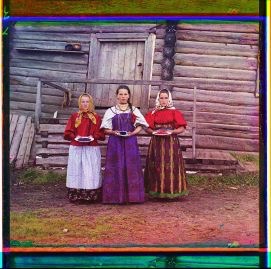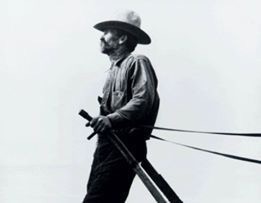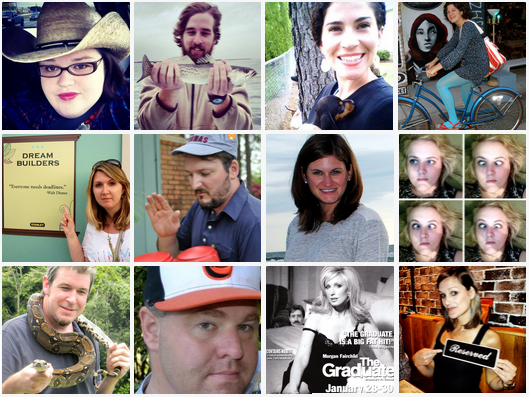
Originally published at AustinDetails.me
Inspiration strikes in strange and unexpected ways. But when it doesn’t strike, there are lots of tricks to juice it along. Here are three that might surprise you.
1. Listen
StoryCorps creates an archive of oral interviews for future generations. It began in 2003 with a StoryBooth set up in Grand Central Terminal for family members to record their interviews with their elders; the results were archived for the rest of us to hear. These days, StoryCorps encourages the interviews to happen at family dinner tables after Thanksgiving, or anytime, anywhere, thanks to its free smartphone app. The best part of the program is that we get to hear these stories of experiences had all over the world, in past times and present, with themes that are sentimental, traumatic, humorous, poignant, wild, fanciful — and parts of them may even true. (The telling is based upon the tellers’ memories, with the potential for false-positives, of course.)

Stories that may even be true (StoryCorps.org)
‘Great Escapes,’ Episode 436, is a typical podcast: It’s a mix of tales that will amuse you, horrify you, bring you to tears. Listen to enough of them and you’ll feel their emotions, find shapes for your characters, come up with interesting events for your own stories. Go to the StoryCorps website to hear more, or download the StoryCorps podcast and listen as the ideas begin to flow.
2. Look
Have you ever browsed the Library of Congress Prints and Photographs Online Catalog? If not, settle back with a hot cuppa joe and let the slide show begin. Sometimes there are photographs whose stories are begging to be imagined and told, like this one made in 1943 by Ansel Adams in his Photographs of Japanese-American Internment at Manzanar; and this 1909 color image from the Russian Empire in The Sergei Mikhailovich Prokudin-Gorskii Collection; and this 2010 Havana image of Cuban band members from The Carol M. Highsmith Archive.



Photographs above by Ansel Adams (1943), Sergei Prokudin-Gorskii (1909), Carol M. Highsmith (2010), Library of Congress
Visual learners beware: You might get lost in the Prints and Photographs Online Catalog for weeks, perusing both historic and contemporary prints and pictures. But there are worse ways to go.

Library of Congress Prints and Photographs Online Catalog
3. Read
Ever read the obituaries? They can make for some fascinating reading, brilliant character studies all. Nobody’s ever a villain in an obituary. And there’s the beauty of them for ideas — because they offer the perfect opportunity for your what if scenarios to emerge. And why limit yourself to current obituaries? Older ones are often more colorful, even embellished, and offer insights into past eras. At the New York Times Times Machine, for example, a random obituary from 1860 turned up the death of Old Lizzie Gray “at the advanced age of 127,” along with a sketch of the sadness of her youth: “She was imported from Africa during the Revolution, after having borne four children in that country . . . she was a prisoner on board a British ship.” You never know what you’re going to find.

Obituary: Old Lizzie Gray, age 127, New York Times, 09/20/1860
Your hometown newspaper makes for a quick scan — but there’s no need to limit yourself there. At Legacy.com, you can search obituaries by city and state for the entire country. To get to the real stories, use the link to the decedent’s hometown funeral home. You can find some surprising biographical details about ordinary folks to stoke your imagination. But don’t stop there. Armed with the funeral home’s details on the burial site, keep on going to FindAGrave.com. There’s often a goldmine of information to be found at this searchable database of cemeteries and obituaries. The links to the family members make it easy to conjure a family tree, with more complete details from local papers and sources.



Sometimes the tributes at FindAGrave.com include photographs of the deceased; more often, it’s just the grave marker that appears. So when I find a tintype of a fourteen-year-old boy like the one above, with such solemn, almost fearful, eyes, and it’s juxtaposed next to a photo of him in his farm field and his tombstone, complete with a full biographical sketch and links to siblings and parents who predeceased him, my curiosity is aroused. Think it’s morbid to look for ideas among the ashes? Consider that whatever inspiration comes will pay tribute to a stranger you never had the pleasure of knowing.
And getting to the real characters is what fiction is all about.
Jann Alexander is an Austin, Texas-based author and photographer. As a storyteller, she’s authored a novel, A Habit Of Hiding, which will be published in 2018; she is currently writing a historical fiction family saga. As a pictureteller, Jann pairs her photographs with words to deepen and enrich stories. She blogs about the creative process for writers, artists, photographers, and designers at PAIRINGS. Connect with Jann on Twitter, LinkedIn, Pinterest, and Facebook.
Photo by Pimthida



